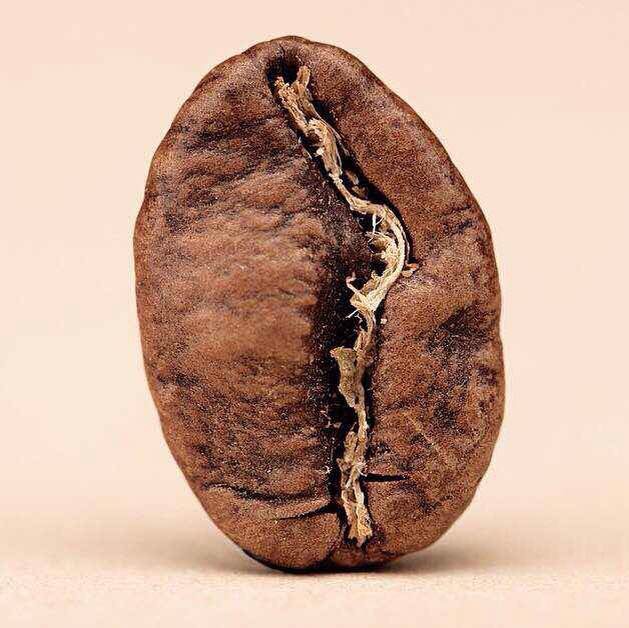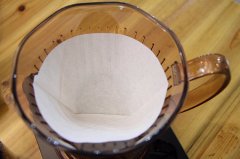Summary of Coffee extraction course extraction is the most important part of Coffee
Extraction is perhaps the most important part of coffee. At present, the understanding of extraction is limited to coffee brewing. But I have to say, extraction is everything! Without extraction, there would be no coffee we drink. Let me briefly define the concept of extraction:
Extraction is all the substances that water brings out of coffee.
There are many difficulties in understanding and using a seemingly simple sentence.
Here I don't want to dig deep into the chemical composition of the extract, such as protein, oil and so on. I just want something useful, such as how to taste the extraction, how to effectively control the extraction, and so on. We'll talk about the chemical analysis later.
When coffee meets water, the fun begins. The main thing is that water dissolves a lot of coffee flavor substances. These dissolved flavor substances make up the taste we drink when we taste coffee. The rest is water-insoluble coffee residue. The very fine powder in these residues also has an effect on the taste, but it does not belong to the category of extraction because they are insoluble in water.
In terms of weight, 28% of the coffee beans are water-soluble. In other words, you can extract 28% of the coffee into the water. The main body of the remaining residue is cellulose and plant fiber.
Water can fully and completely dissolve these soluble compounds. But a helping hand is needed. Just throw the whole bean into the hot water, only the surface layer can be dissolved. Because the density of cooked beans is still high and the structure is complex. In this case, it is difficult for water to penetrate the whole bean and bring out the flavor. To give a helping hand means to increase the surface area of the coffee beans, we need to "open" the coffee beans so that the water can easily pass through and take away the flavor. It is easy to increase the surface area with a bean grinder. The finer the coffee is ground, the more its surface area increases geometrically.
We assume that this is the ideal extraction state: grind the coffee beans as fine as flour (with the largest surface area), flush, and the water automatically brings out the most delicious flavor. But the reality is bony, this way can only bring bitter, hell-like taste of coffee. Not all soluble flavor substances are delicious. So we can only control the amount of extraction to make a delicious cup of coffee.
There is another way: increase the amount of powder, only the front and middle extraction, to avoid the back of the smell, is also not desirable. Because the lack of extract is uneven, the taste is still not good.
We say that extraction is a two-way line. On this road, we always want to bring coffee to the middle of the road to avoid going too far. Once we cross this two-way line, the extraction is uniform and full, and before that, we have always been on this two-way line.
Lack of excellence
The lack of excellence is generally caused by the failure to bring out enough coffee flavor substances, and there are many that have not been brought out, which is not enough to cover the miscellaneous flavor.
Imagine a cup of espresso with very short extraction time, sour, not sweet, very salty, and no return to sweet taste. These four features are just used to describe the unrefined taste. Let's discuss it in depth.
Dead acid
What is the difference between acid sourness and acid acidity? This is a good question. In many languages, these two words can be mixed, causing confusion in understanding.
Let's define that sourness always has a negative impact on people. We use dead acid to describe it in Chinese. Dead acid is irritable and has an immediate physiological reaction-you will immediately frown and bite your lips and get numb on both sides of your tongue. In short, dead acid is unpleasant.
In the English-speaking world, acidity is a neutral word, which has nothing to do with good or bad. Take a chestnut, we will say, "the sour acidity of this coffee is so bright", and we will also say: "the sour acidity of this coffee is a little bad", acidity can control, dead acid sour, rich acid juicy, bright acid bright, sharp acid tart, and so on.
Not sweet
As far as I understand, the most important thing in the flavor of coffee is sweetness. Do you think anyone will complain that the concentrate is too sweet? Not at all. I strongly suggest pursuing sweetness! My credo has always been: if something is rare, it must be a good thing. The lack of excellence is 108000 miles away from sweetness. Poor coffee always brings the kind of mania that "continue to abuse me" after drinking it. The "advantage" of not being sweet is that it highlights the dead acid!
Salty taste
It is difficult for ordinary people to feel the salty taste, but for a veteran who reads coffee, the coffee is too salty to taste. Taste the ammonia and you'll know, but listen to me and don't try.
Studies have shown that acids and salts are more soluble in water than sugar. That's why the coffee is sour and saltier.
There is no reply.
Perfectly extracted coffee will last in your mouth for minutes or even hours. It's like eating some black sugar or taffy in your mouth.
Those who lack excellence will not have this feeling at all, and there will be no return at all.
There are other elements to describe the lack of excellence, but these four are the most important.
Over-extraction
Bitter
Excel is very bitter, unless life is frustrated and wants to have some Kimberley bitterness, I don't want to try this kind of bitterness at all. In addition to caffeine, there are many substances that cause suffering.
Dry and astringent
Similar to the astringency of black tea, wine and spirits, this feeling comes from polyphenols, a chemical found in plants, seeds and bark.
Polyphenols are bitter and can stick to proteins in saliva. Laymen generally use the sense of obstruction and graininess to describe the sensation on the tongue.
Emptiness
We extract coffee in order to get sweet, smooth and moisturizing coffee. Exquisite coffee, empty, rough and plain.
There are other elements to describe the lack of excellence, but these three are the easiest to locate. These flavors are universal, from top Rosa to commercial beans. Since we are boutique coffee, it means to make our products different and bring more value to our customers. The outstanding flavor definitely does not belong to the category of boutique coffee.
Finally, let's talk about the honey spot or the delicious area.
Perfect extraction
The perfect extraction is amazing, and all the efforts are put into balance, balancing countless variables, and then producing that small cup of the ultimate flavor.
Imagine a cup of espresso that is just right, as sweet as ripe fruit, with a clean and clear flavor, bright acidity, rich and layered, and lasting.
Transparent sweetness
As I mentioned earlier about my belief, I spent countless hours testing sweeter coffee and enjoyed it.
Just like the ripening process of plums and similar nucleated fruits, at first they are sour or even sharp, then they become sweeter and sweeter as the fruit ripens. Sugars are fully synthesized, and there are more and more, stronger, and even greasy sweets in the body. The fruit at this time is very sweet. If you smell it, you can smell the sweetness. It's the same with coffee. All you want is this sweet sweet spot. Did not step on this point wood relationship, I believe you through study and practice, one day will be able to step on it!
Clean and clear
George Howell once compared coffee processing to a window into the coffee world. I use this metaphor to think about extraction and baking, thinking that extraction and baking is another grid of this window to get a glimpse into the world of coffee. The lack of excellence and over-excellence is like mud brushed on the window, so that we can not see the coffee world. The usual extraction defects mask the original taste of coffee.
Sour
Beautiful, rich and clearly identifiable acids can indeed be "seen" in coffee. These acids are so intoxicating that they are so erratic that when you are sure that you have a particular fruit flavor, it seems that you can drink something else the next.
Huigan is long-lasting
Persistence is the characteristic of perfect extraction, and persistence itself is a kind of proof.
The above-mentioned three categories of extraction, underextraction, over-excellence, perfection, and the 11 features under the three categories, I hope you can use these features to understand the degree of extraction, whether it is insufficient, too much, or just right.

Important Notice :
前街咖啡 FrontStreet Coffee has moved to new addredd:
FrontStreet Coffee Address: 315,Donghua East Road,GuangZhou
Tel:020 38364473
- Prev

The trick to making good coffee is to master the six elements.
Whether it's making a cup of Espresso or filtered hand-brewed coffee, the key point is to master the six elements. The specific grinding degree of powder to water corresponds to the optimization of brewing methods (soaking method, mixing method, filter type, etc.) operation skills (stirring, water temperature, disturbing flow, etc.). The general factors of good water quality and suitable filtration media are these six points, but in the actual process of making coffee, you want to be smart.
- Next

What kinds of coffee do you have? Talk about some common varieties and their iconic taste
In the class of the coffee roaster training class, the proportion of the theory course is about 40%. Most of the time is operated and practiced by the students themselves. The college uses the Korean Tae-hwan roaster for training, and the students analyze the results of the cup test. Compare, adjust and summarize one by one, when it comes to the varieties of coffee trees in the theory class, in fact, we can talk a lot, but only as a discrimination of coffee flavor.
Related
- Detailed explanation of Jadeite planting Land in Panamanian Jadeite Manor introduction to the grading system of Jadeite competitive bidding, Red bid, Green bid and Rose Summer
- Story of Coffee planting in Brenka region of Costa Rica Stonehenge Manor anaerobic heavy honey treatment of flavor mouth
- What's on the barrel of Blue Mountain Coffee beans?
- Can American coffee also pull flowers? How to use hot American style to pull out a good-looking pattern?
- Can you make a cold extract with coffee beans? What is the right proportion for cold-extracted coffee formula?
- Indonesian PWN Gold Mandrine Coffee Origin Features Flavor How to Chong? Mandolin coffee is American.
- A brief introduction to the flavor characteristics of Brazilian yellow bourbon coffee beans
- What is the effect of different water quality on the flavor of cold-extracted coffee? What kind of water is best for brewing coffee?
- Why do you think of Rose Summer whenever you mention Panamanian coffee?
- Introduction to the characteristics of authentic blue mountain coffee bean producing areas? What is the CIB Coffee Authority in Jamaica?

